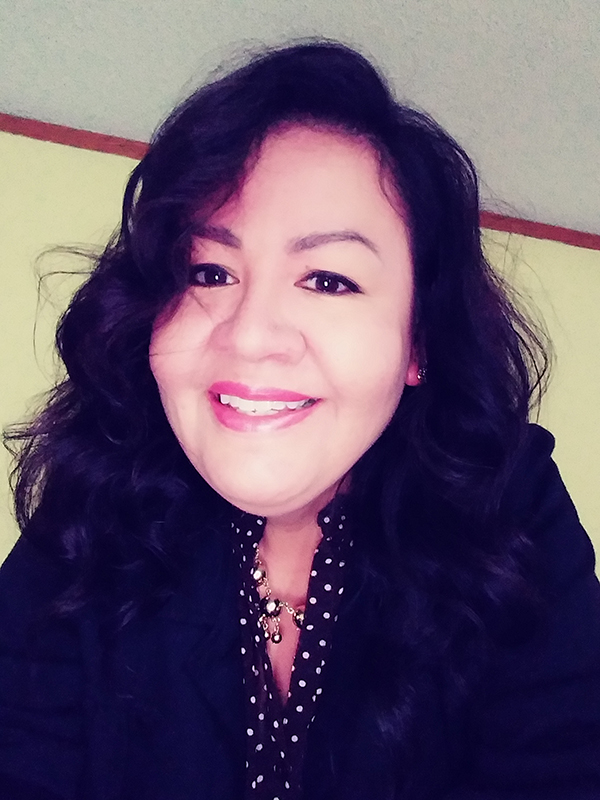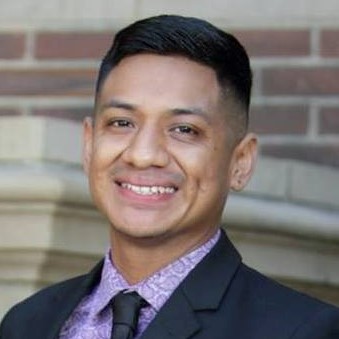The UCLA Alumni Mentor Program, a signature offering from Alumni Affairs that facilitates the pairing of alumni and students for mentorship, is currently ramping up for its 17th year. The program engages 2,000 alumni and student participants annually, and serves both undergrads and grad students.

Dr. Belinda Hernández ’96
Applying to UCLA was the first time I took ownership of what my future might look like.”
Growing up in Salinas, California, first-generation U.S. born, Hernández says, “I did have mentors, but didn’t have anyone to tell me what to really expect in college. But when I was applying to UCLA there was one person who I learned of who worked with AAP [Academic Advancement Program] students, first-generation students, transfer students. I wasn’t getting the support from my own high school — they told me, ‘just go to the junior college.’ This person helped guide me. Applying to UCLA was the first time I took ownership of what my future might look like.”
With a drive to succeed and the intuitive belief that she was capable of more than others might have thought possible, Hernández was accepted to UCLA, graduated in four years, double-majoring in sociology and Chicana/o studies while working 30 hours per week.
A few years after graduating, she began to study mentorship and applied her research to her career. “I became interested in systems, why are things broken, why are the employees unhappy, why are communities not thriving, how can we fix this? I went back to get my doctorate in 2017 at the University of the Pacific. All my work experience made me realize that the specific research [on mentoring] that I was interested in simply was not out there — so I studied mentoring relationships, suitability factors, responsibilities of the protégé and the mentor. When does it fit and when does it not fit? How do you know it’s working or not working?
You want to have different kinds of people in your life with different perspectives, with diverse backgrounds and abilities. As a leader, you don’t want to surround yourself with the same person that you are.”
“My doctoral dissertation was on mentorship for leadership development — how did it support leadership development, how do you leverage it? There’s a perception that once you become an executive, that’s it — you turn around and become a mentor — which you do, but it doesn’t stop you from also needing your own mentorship. So you’re giving it and receiving it. [Our lives and careers are] in constant evolution. Sometimes a person helping you is not called a mentor — they’re a coach, or even a peer. We like to call them ‘executive coaches’ when we become CEOs, but it’s all under the umbrella of mentors.”
Immersing herself in what mentorship means has also helped redefine her early life experiences.
“In the last two or three years I’ve realized it’s not so much that we have direct examples of someone in our family who went to college who could tell you what to expect, but what we did learn is the value of working hard, because our parents worked hard. As I was doing my research, I realized that I did have mentors — but they were just called something different.”
Her work in academia as well as in consultancy has also shown her that there is more to finding an ideal mentor/protégé relationship than merely looking for commonalities.
“In my own research with Latina executives, they wanted a constellation of people — a diverse group of people who do not necessarily look like them, who do not do the same things they do in their career. You want to have different kinds of people in your life with different perspectives, with diverse backgrounds and abilities. As a leader, you don’t want to surround yourself with the same person that you are. You lead so many different types of people. Being Latina first-generation does not necessarily mean you only want Latinas as mentors. Yes, we want mentors we can culturally identify with, but we want a diverse group of people we can reach out to too.”
Perhaps the most important factor in the success of a mentorship, says Hernández, is sharing a set of core values. For Hernández, these include honoring one’s authenticity, uplifting our communities, professional and personal integrity.
“If my values aren’t matching or aligned with yours, which makes the foundation of this relationship, how are you going to come to me and tell me a problem that you’re having or ask how I can help you if you don’t feel that I can respect your values?”
Hernández and her student Sidronio had that combination of similarities and differences that she finds ideal.
“This was my first experience in mentoring for UCLA; I had capacity for two students, ended up with one, who was a great match. I could see there was something there. Similar backgrounds, but not identical. I kind of saw myself at his age.”
Supporting a student can really benefit a student, but it can benefit the mentor as well, especially if they’re in leadership or mid-level management and in thinking about this next generation… We can’t not mentor.”
In selecting a student to mentor, Hernández considers what she can bring to the table and what she will gain from the experience.
“I’m very picky when I choose mentors or mentees, because if they think like me, what am I going to get from it? Relationships like this are reciprocal. It’s not so much ‘I want to learn these specific things,’ like how to become a better mentor. Having completed all of this research, mentoring a student lets me try to apply it and really be focused [on a concrete situation].”
Hernández has a definite approach to mentoring, one that is based on boosting confidence, sharing relevant life experiences, being flexible and encouraging honest communication.
“My goal as their mentor is, how do I pump them up — show confidence in them? I call it the psycho-social-functional. It’s not just career advisement; it’s this stuff that maybe, for some students, they haven’t had, because life has been challenging for them. They may be timid; maybe they have not had a mentor. I just use my own experiences because I didn’t have them either.
“This was a formalized mentorship experience; we were brought together under this program. You hope the student you work with somehow feels supported, that you provided them with some safety and support. I didn’t go in with a specific goal; just how can I support them and how can I learn as well? Because maybe there were things that I could do better. So I had to lay out that culture in our relationship of ‘give me a heads-up, let me know if there’s something that you need and you’re not getting.’ I don’t take things personally; it just makes us better.”
In addition to general assistance and coaching, Hernández’s experience directly benefited her protégé. “My mentee mentioned that he wanted to do some consulting after he graduates and that’s what I’ve been doing, so I brought him into some of these meetings that I had with my client, so he could learn that. Two months after the closing of the program, he was asked to be a contractor on a project. His client needed something done in a short time — two to three months. He saw how you start from nothing and you end up with something brilliant in the end.”
The younger generations are brilliant and innovative — and they take the risk…That’s something I get out of it — that energy; it’s rejuvenating to work with these students.”
The reciprocal nature of the mentor-protégé relationship is never far from Hernández’ thoughts when discussing mentorship.
“Supporting a student can really benefit them, but it can benefit the mentor as well, especially if they’re in leadership or mid-level management and thinking about this next generation. I need to mentor this next group of folks to take over because now there’s a different level for me that I have to advocate for — I can’t be in the weeds and be on the ground. To prospective mentors, I would say, ‘We know you’re busy, but that’s why we need to mentor these students, so they can begin to learn to take over those big pieces too.’
“The environment, the economy, everything is changing — every setting has changed and it’s taking so much of our time that we can’t not mentor. Who do we have to take over? The younger generations are brilliant and innovative — and they take the risk. My generation — and I’m not that old — but I think we were a little less willing to take those risks. And so, for me, that’s something I get out of it — that energy; it’s rejuvenating to work with these students.
“In addition, being on the mentor side can help you learn what you need out of a mentor when you’re the protégé.”
Once the mentorship has started, Hernández has simple advice for mentors.
“You have to point things out — you have a responsibility — if you really want to mentor, you have to be thoughtful about how you engage in conversation. Base it on your own experience; be authentic with it.”

Sidronio Jacobo
Hernández intends to participate again in this year’s program. In spite of the on-going effects of the pandemic on the student experience, the impact of alumni mentors on the Bruin community is substantial. Each year more and more alumni join the effort to equip UCLA students for success on and off campus. To sign up to be an alumni mentor, visit https://alumni.ucla.edu/mentor for more information.